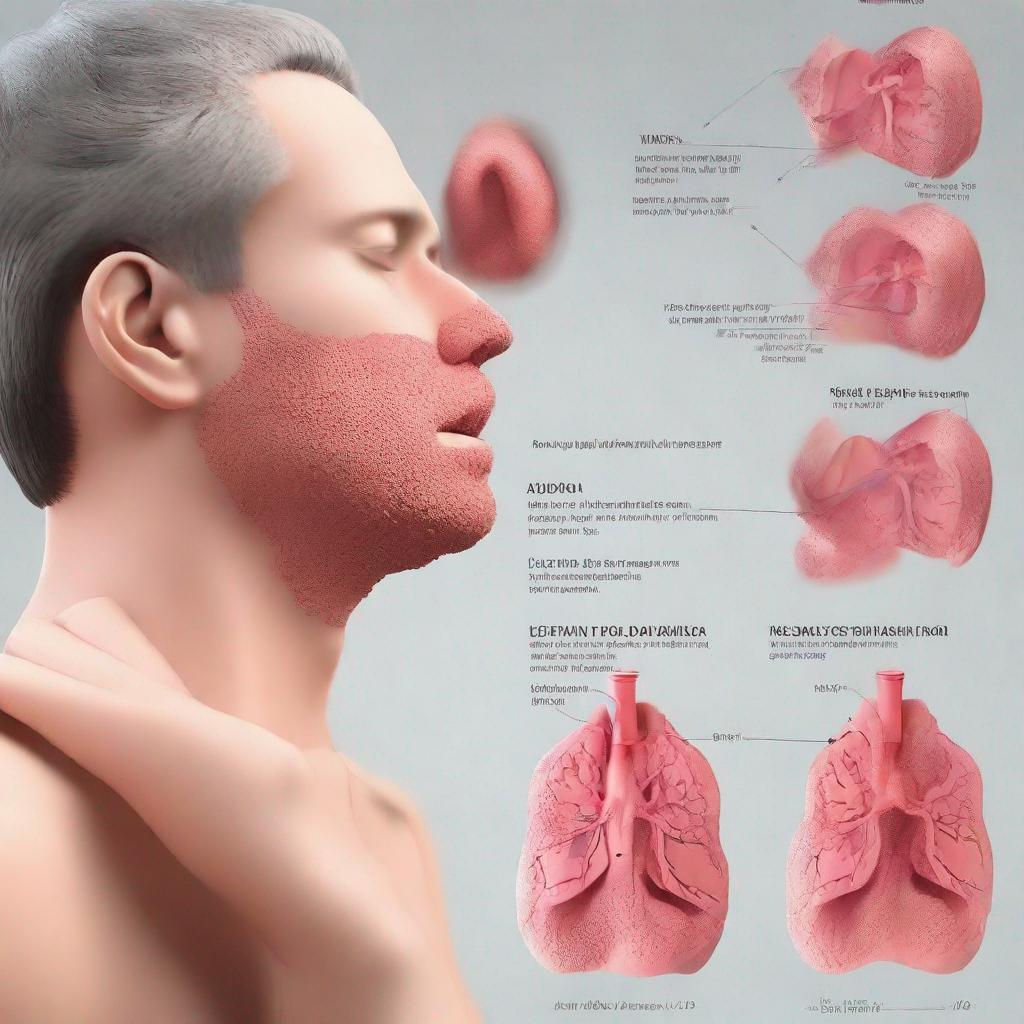## Asthma: A Comprehensive Guide
### Introduction
Asthma is a chronic respiratory disease that affects the airways and can cause difficulty breathing. It is characterized by inflammation and narrowing of the airways, leading to symptoms such as wheezing, coughing, and shortness of breath.
### Symptoms
Common symptoms of asthma include:
– Wheezing
– Coughing, especially at night or in the early morning
– Shortness of breath
– Chest tightness or pain
– Difficulty sleeping
– Fatigue
### Diagnosis
Asthma is typically diagnosed based on symptoms and a physical examination. Your doctor may perform the following tests to confirm the diagnosis:
– **Spirometry:** Measures the amount of air you can inhale and exhale.
– **Peak flow monitoring:** Monitors the airflow in your lungs using a small handheld device.
– **Chest X-ray:** Rules out other conditions that can cause similar symptoms.
– **Allergy testing:** Identifies potential triggers that may cause asthma attacks.
### Prevention
**Avoid Triggers:** The best way to prevent asthma attacks is to avoid triggers that cause them, such as:
– Allergens (e.g., pollen, dust mites, pet dander)
– Irritants (e.g., smoke, pollution, cold air)
– Exercise
– Emotional stress
### Treatment
Asthma **cannot be cured,** but it can be managed with medications and lifestyle changes. Common treatments include:
– **Inhalers:** Deliver medications directly to the lungs, including bronchodilators to open the airways and corticosteroids to reduce inflammation.
– **Nebulizers:** Use a machine to turn medication into a mist that can be inhaled.
– **Leukotriene modifiers:** Block the action of leukotrienes, which contribute to inflammation.
– **Oral steroids:** Taken by mouth for severe asthma attacks.
– **Immunotherapy (allergy shots):** Gradually expose you to small amounts of allergens to reduce sensitivity.
### Complications
Untreated asthma can lead to complications such as:
– Severe asthma attacks requiring emergency medical attention
– Long-term damage to the airways
– Respiratory failure
– Death
### Vaccinations
It is important for people with **asthma** to receive regular vaccinations, including:
– Flu vaccine
– Pneumococcal vaccine
### Related Terms
Asthma is often associated with other conditions, such as:
– Allergy
– Rhinitis
– Sinusitis
– Eczema
– Atopy (a genetic predisposition to allergic diseases)
### Management
Effective **asthma management** involves:
– Following a doctor-prescribed treatment plan
– Using medications as directed
– Avoiding asthma triggers
– Monitoring symptoms and adjusting treatment as needed
– Educating yourself about asthma and recognizing warning signs
– Establishing an **asthma management plan** with your doctor




